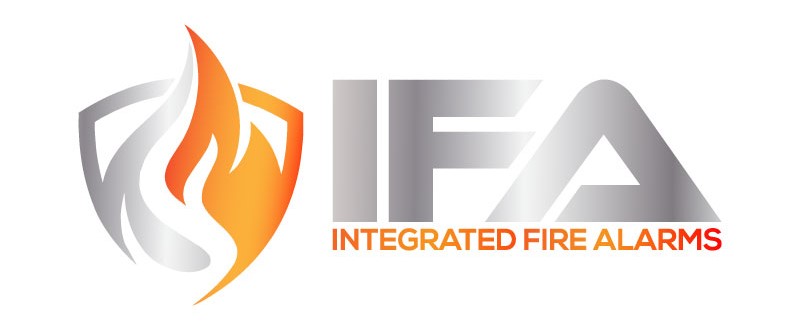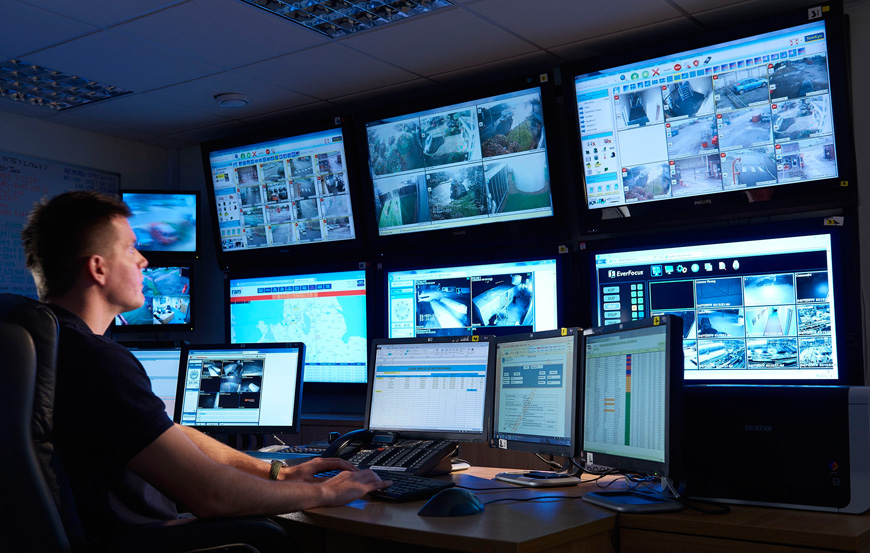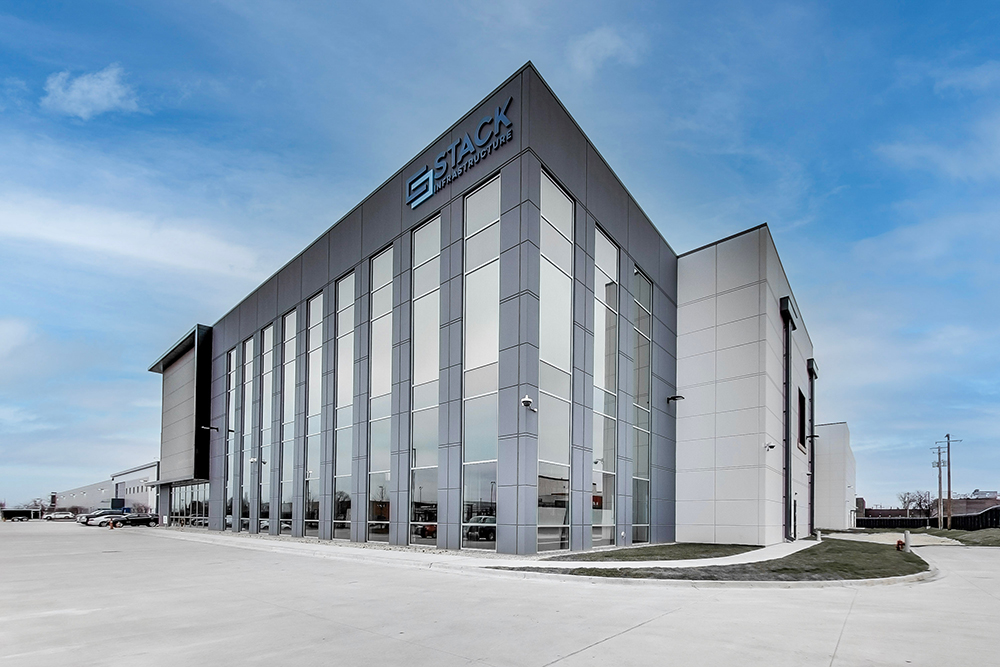Fire alarm monitoring costs are an important consideration for any business owner. Investing in a fire alarm monitoring system can save lives, protect assets, and even reduce insurance premiums. In this comprehensive guide, we will discuss the various costs associated with fire alarm monitoring systems, the benefits they provide, and the different types of systems available. By the end of this article, you will have a better understanding of the investment required for a safer business.
Overview of Fire Alarm Monitoring Costs
The total cost of fire alarm monitoring can vary greatly depending on several factors, such as the type of system installed, the monitoring service chosen, and the size of the business. Here is a general breakdown of the costs associated with fire alarm monitoring:
Installation Costs
The installation cost of a fire alarm monitoring system can range from $1,500 to $10,000 or more, depending on the complexity of the system and the size of the property. This cost typically includes the necessary equipment, such as control panels, detectors, and notification devices, as well as the labor required for installation.
Monitoring Service Fees
Fire alarm monitoring service fees are usually charged on a monthly basis and can range from $40 to $75 per month. These fees cover the cost of having a professional monitoring center monitor your fire alarm system 24/7 and notify the appropriate emergency services in the event of an alarm.
Maintenance and Repair Costs
Regular maintenance is essential to keep your fire alarm monitoring system functioning properly. Maintenance costs can vary depending on the size and complexity of your system, but on average, you can expect to pay between $125 and $200+ per maintenance visit. Repair costs will depend on the nature of the fault and the extent of the damage, with an average cost of around $92 for a repair service.
Additional Costs
Additional costs may include training for staff members on how to use the fire alarm system and respond to emergencies, as well as the purchase and installation of fire suppressors, sprinklers, and other fire protection equipment.
The Importance of Fire Alarm Monitoring for Businesses
Fire alarm monitoring is essential for businesses of all sizes. The benefits of having a professionally monitored fire alarm system in place far outweigh the costs, with the following advantages:
Lives and Property Protected
Fire alarm monitoring systems provide early detection of fires, allowing occupants to evacuate the building in a timely manner, potentially saving lives. In addition, a quick response from emergency services can help minimize damage to property and assets.
Reduced Insurance Premiums
Having a monitored fire alarm system in place can result in lower insurance premiums for your business. Insurance companies recognize the added protection provided by monitored systems and may offer discounts on premiums as a result.
Compliance with Regulations
Fire alarm monitoring systems help businesses comply with fire safety regulations and avoid fines and penalties associated with non-compliance. Regular maintenance and monitoring ensure your system remains in good working order, reducing the risk of false alarms and ensuring proper functioning during an emergency.
Fire Alarm Monitoring System Types
There are two main types of fire alarm monitoring systems: conventional and addressable. Understanding the differences between these systems will help you determine which is best suited for your business.
Conventional Fire Alarm Monitoring Systems
Conventional fire alarm monitoring systems divide your property into zones, providing a general indication of where a fire has occurred. Each zone is connected to a control panel, which displays a signal when a detector is activated. Conventional systems are less precise and cheaper than addressable systems, making them a suitable choice for small businesses.
Addressable Fire Alarm Monitoring Systems
Addressable fire alarm monitoring systems assign a unique address to each device, allowing for the exact location of a triggered detector to be pinpointed. This higher level of precision is ideal for businesses with larger properties or those at higher risk of fires, such as restaurants, factories, or chemical storage facilities. Due to their increased accuracy, addressable systems are more expensive than conventional systems.
Factors Affecting Fire Alarm Monitoring Costs
Several factors can influence the overall cost of a fire alarm monitoring system. Consider the following aspects when determining your budget:
Size and Complexity of the System
Larger businesses or those with more complex needs may require more elaborate fire alarm monitoring systems, which can increase the overall cost. The number of detectors, control panels, and notification devices needed will depend on the size of your property and the specific risks associated with your business.
Monitoring Service Provider
Different fire alarm monitoring service providers may charge different fees for their services. It’s important to shop around and compare quotes from multiple providers to ensure you’re getting the best value for your investment.
Maintenance and Repair Requirements
Regular maintenance is crucial for the proper functioning of your fire alarm monitoring system. Some businesses may choose to enter into a maintenance contract with their service provider, which can result in discounted maintenance fees. Additionally, the cost of repairs will depend on the nature and extent of any damage to the system.
Reducing Fire Alarm Monitoring Costs
There are several ways to reduce the overall cost of your fire alarm monitoring system without compromising on safety and protection:
Choose the Right System for Your Business
Select a fire alarm monitoring system that is best suited for your specific needs. Smaller businesses may be able to opt for a more affordable conventional system, while larger businesses or those with higher risks may require a more advanced addressable system.
Regular Maintenance
Regular maintenance can help prevent costly repairs and ensure your fire alarm monitoring system remains in good working order. By keeping your system well-maintained, you can avoid false alarms and ensure proper functioning during an emergency.
Compare Quotes from Multiple Providers
When selecting a fire alarm monitoring service provider, it’s essential to compare quotes from several companies to ensure you’re getting the best value for your investment. Be sure to inquire about any additional fees, such as maintenance and repair costs, and compare the level of service provided by each company.
Fire Alarm Installation Process
Proper installation of a fire alarm monitoring system is crucial to ensure its effectiveness and reliability. The installation process can vary depending on the type of system and the specific requirements of your business, but generally involves the following steps:
Site Assessment
A professional fire alarm installation company will first conduct a site assessment to determine the most appropriate system for your business. This assessment will consider factors such as the size of your property, the layout of the building, and the specific risks associated with your business.
System Design
Based on the site assessment, the installation company will design a fire alarm monitoring system tailored to your needs. This design will include the placement of control panels, detectors, and notification devices, as well as any additional fire protection equipment, such as sprinklers or fire suppressors.
Installation
Once the system design is finalized, the installation process can begin. This involves mounting the control panels, detectors, and notification devices in their designated locations and connecting them to the monitoring center via landline or wireless communication.
Testing and Commissioning
After the system is installed, it must be thoroughly tested and commissioned to ensure proper functioning. This includes verifying the correct operation of all detectors, control panels, and notification devices, as well as testing the communication between the system and the monitoring center.Fire Alarm Monitoring Maintenance
Regular maintenance is essential to keep your fire alarm monitoring system functioning properly and to comply with fire safety regulations. Maintenance typically involves the following tasks:
Inspection
A professional technician will inspect your fire alarm monitoring system to ensure all components are in good working order. This includes checking for any signs of damage or wear, as well as verifying the correct operation of all detectors, control panels, and notification devices.
Cleaning
Detectors and other components of your fire alarm monitoring system may require periodic cleaning to ensure proper functioning. This can include removing dust, dirt, and debris from detectors, as well as cleaning control panels and notification devices as needed.
Testing
During maintenance visits, your fire alarm monitoring system will be tested to ensure proper communication with the monitoring center. This may involve triggering the alarm and verifying that the monitoring center receives the appropriate signal.
Repairs and Replacements
If any issues are identified during the inspection or testing process, the technician will perform any necessary repairs or replacements to restore your system to full working order.
Fire Safety Best Practices for Businesses
In addition to investing in a fire alarm monitoring system, there are several best practices businesses should follow to ensure the safety of their employees and property:
Conduct Regular Fire Risk Assessments
Perform regular fire risk assessments to identify potential hazards and implement appropriate measures to mitigate those risks. This may involve updating your fire alarm monitoring system, installing additional fire protection equipment, or making changes to your business processes.
Train Employees on Fire Safety
Educate your employees on fire safety and ensure they are familiar with your business’s fire safety plan. This includes training on how to use fire extinguishers, how to evacuate the building in an emergency, and what to do in the event of a fire.
Keep Fire Exits Clear and Accessible
Ensure all fire exits are clearly marked and accessible at all times. Regularly inspect fire exits to ensure they are free from obstructions and functioning properly.
Store Combustible Materials Safely
Store combustible materials, such as paper, chemicals, and flammable liquids, in designated areas away from ignition sources. Implement proper storage and disposal procedures to minimize the risk of fire.
Choosing a Fire Alarm Monitoring Service Provider
When selecting a fire alarm monitoring service provider, consider the following factors:
Experience and Reputation
Choose a provider with a proven track record and a solid reputation in the industry. Look for companies with several years of experience in fire alarm monitoring and a history of satisfied customers.
Service Offerings
Select a provider that offers a comprehensive range of services, including installation, maintenance, monitoring, and repair. This ensures you have a single point of contact for all your fire alarm monitoring needs and can potentially save you money on maintenance and repair costs.
Customer Support
Choose a provider that offers responsive and reliable customer support. This includes 24/7 monitoring services, as well as prompt and professional assistance in the event of an emergency or system issue.
Pricing
Compare quotes from multiple providers to ensure you’re getting the best value for your investment. Be sure to inquire about any additional fees, such as maintenance and repair costs, and ask for a detailed breakdown of all charges.
Final Thoughts on Fire Alarm Monitoring Costs
Investing in a fire alarm monitoring system is a crucial step in ensuring the safety and protection of your business, employees, and assets. While the costs associated with fire alarm monitoring can vary depending on the size and complexity of your system, the benefits provided by a professionally monitored system far outweigh the investment. By understanding the costs involved and following the best practices discussed in this guide, you can make an informed decision that will help safeguard your business from the devastating effects of fire.
Don’t wait any longer to invest in the safety and security of your business. Research your options, compare quotes, and take the necessary steps to implement a fire alarm monitoring system that meets your needs and budget. In doing so, you will not only protect your business but also demonstrate your commitment to the well-being of your employees and customers.




